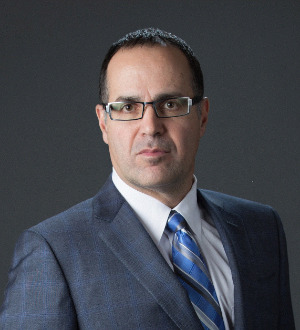Work injuries result in many questions and concerns by employees who may be facing the situation for the first time. Nicholas Pothitakis of the Pothitakis Law Firm, P.C., has been representing clients with Iowa workers’ compensation claims for over 20 years. Set forth below are what he believes are some of the most important issues that need to be addressed with injured workers.
Notify your employer.
Under most workers’ compensation laws, the employee is required to provide notice to the employer within a certain period of time from the occurrence of the injury. If the employee fails to meet the deadline, the employee may lose their right to pursue the claim. There are occasions when that deadline can be extended, but it’s better to be vigilant in providing notice as soon as the injury. In Iowa, that deadline is 90 days from the date of the injury.
Obtain medical care.
In addition to reporting the injury to the employer, an injured worker needs to seek medical care. Employees sometimes think that they will simply get better and for that reason they wait as long as possible before seeking treatment. An injured worker is in a much better position with respect to his or her claim if medical care is sought shortly after the injury—even if a doctor just documents the condition. By documenting the injury early on, it makes it easier to obtain care when it is truly needed.
Quit missing appointments.
When an injured employee is scheduled for a doctor’s appointment or physical therapy appointment, it is imperative that they appear for those appointments. Failing to attend these appointments can provide the appearance that the injured worker’s condition is not serious, significant, or he or she has fully recovered. Further, in Iowa and other states the failure to attend doctor’s appointments could result in the cessation of workers’ compensation benefits.
Bill should be paid for by the worker’s compensation insurance carrier.
When an injured worker receives medical care from workers’ compensation physicians, it is important that any bills are given to the workers’ compensation insurance carrier. Some health care providers may be confused or simply prefer to submit the charges to an employee’s health insurance carrier. This creates a problem in which the employee may end up paying deductibles or copays for care that should have been paid in full by the workers’ compensation insurance carrier. Further, sometimes after the health carrier pays the charges they “claw” them back and leave the bill outstanding. A settlement prior to the claw back can create circumstances where a worker has to pay the bill themselves.
Rate, rate, and rate.
The amount received for being off work and for the permanent injury is based on the injured employee’s workers’ compensation rate. In Iowa and most states, the insurance company is obligated to provide the employee benefits while he or she is off of work. They are also obligated to provide the employee benefits if he or she has a permanent injury. The amount of these benefits is in part based upon the employee’s average wage. Insurance carriers many times calculate the average weekly wage in a manner that is advantageous to them and results in a reduced wage. By including short weeks, vacation weeks, or weeks in which the employee is sick, the insurance carrier can lower the rate at which they pay all benefits. For these reasons it’s important for the employee to fully review how the average wage was computed to confirm its accuracy.
The insurance company’s job is not to protect you.
A workers’ compensation insurance carrier’s primary goal is to reduce the costs that are incurred as a result of the workers’ compensation injury. The insurance company is not there to try and provide the employee as much in benefits as possible or to maximize their payout. The insurance company is a for-profit business that is trying to maximize profit by minimizing the costs associated with the injury. They do this by reducing the cost of medical care, amount of time off work, and minimizing permanency benefits. It is important that the injured worker be aware of this fact. They should check and double check the information that they are provided concerning the claim and consult an attorney when questions arise.
There are many issues that employees face after an injury. Wrong decisions early on by an employee can result in the denial of benefits or other serious complications with their claim and entitlement to benefits. Following the guidelines above is a good start to making sure that benefits will be provided promptly and fully to an injured worker.
--------------
The Pothitakis Law Firm, P.C., is a law firm handling cases for injured workers across the state of Iowa in the area of Iowa workers’ compensation claims. Nicholas Pothitakis has focused his practice on this area of law for that past 25 years. He has been named to Best Lawyers® in the area of workers’ compensation law – claimants. Additional information concerning his firm can be found at www.pothitakislaw.com.
































